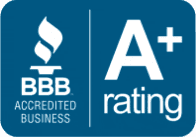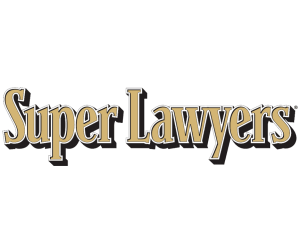Have you been ARRESTED or contacted by the Police, a Detective, FBI, or CPS?
DMV Administrative Hearing Criminal Defense Lawyer in Los Angeles
DUI: DMV Administrative Hearing in Los Angeles
The consequences of a DUI arrest include the suspension or revocation of your driver’s license. When facing a DUI conviction, the court, or California Department of Motor Vehicles (DMV) can trigger a driver’s license suspension or revocation. While you can post bail and go home to await your trial and preceding court proceedings, the Department of Motor Vehicles can suspend your driver’s license immediately.
See: DMV DUI Administrative Hearing
During your arrest, the traffic officer will notify you of the DMV’s intention. You have a chance to contest the suspension by requesting a DMV hearing, which is an informal proceeding held at a local DMV office. As long as you request a hearing within ten days of your arrest, the DMV will hold the hearing where you can present defenses to the DUI allegation and counter the evidence presented against you.
The easiest way to navigate a DMV hearing is by hiring and retaining a DUI attorney immediately after your arrest. Your attorney will help you schedule a hearing on time and build a solid defense to help avoid a license suspension and perhaps a huge fine.
An Overview of DUI DMV Hearings in California
When you face a DUI (Driving Under the Influence) (California Vehicle Code section 23152) arrest in California, the arresting officer will take away your license and issue a notification informing you that the plans for an administrative driver’s license suspension are underway.
Once you receive this notification, you have up to ten days to schedule a hearing with the DMV. This is an administrative procedure where you appear before a DMV hearing officer to present evidence that will hopefully convince the Department of Motor Vehicles not to suspend your driver’s license.
Unlike the DUI criminal case, a DMV hearing is not held in a formal courtroom. Instead, you can have it over the phone or in person at the appropriate DMV office.
At such a DMV hearing, you have the following rights:
- Right to legal representation. Although the DMV hearing is informal, you have a right to be represented by a DUI attorney. Your attorney will help you schedule the hearing and build a defense against the license suspension.
- Right to testify. The Department of Motor Vehicles holds a DMV hearing because they believe you were drunk driving. You can convince the hearing officer otherwise by testifying on your own behalf about your account of events.
- Cross-examine witnesses. The DMV hearing officer can call upon the arresting officer as a witness at your hearing. The officer is a critical witness since they have first-hand information about your conduct before and after the arrest. You have the right to cross-examine the officer to dispute their claim at the hearing.
- Right to a written decision. When the DMV officer concludes your hearing, they decide whether you win or lose the hearing. The findings must accompany the final decision.
- Right to a review. If you are not satisfied with the hearing officer’s decision following your DMV hearing, you have a right to seek a review of the decision. However, you must file for the review within fourteen days of receiving the decision.
Fatality Hearing
When you drive a vehicle on the streets, highways, and freeways in California, you accept the responsibility to drive safely while ensuring the safety of other road users. If you are involved in an accident that claims another person’s life, the DMV will investigate your culpability in the accident. If your negligence or recklessness is a factor in the fatal accident, you may be subject to a license suspension or revocation.
See (“Fatal and Serious Injury Accidents”).
Just as with a DUI, the DMV allows you to schedule and attend a hearing following the fatal accident to defend the potentially adverse action against your driving privileges.
Criminal Defense
Menu










Tips to Navigate a DMV Administrative Hearing
If you have been drinking and the traffic officers stop your vehicle, the stop will likely result in an arrest for drunk driving.
See Judicial Council of California’s Criminal Jury Instructions (“CALCRIM”) CALCRIM Number 2110 (“Driving Under the Influence — Veh. Code § 23152(a), (f), (g)”):
See also CALCRIM Number 2111 (“Driving with 0.08 Percent Blood Alcohol — Veh. Code § 23152(b)”):
Winning your DMV hearing is the first step in protecting your rights and avoiding the harsh consequences of a drunk driving arrest.
See (“Driver Safety Administrative Hearings Process”).
The following are steps you can take to improve your chances of prevailing at your DMV hearing:
- Schedule the Hearing on Time
Following your arrest, the traffic officer confiscates your driver’s license and issues a notification indicating the DMV’s intention to suspend your license. If you want to contest the administrative suspension of your license, you must schedule the administrative hearing within ten days of your arrest. Failure to schedule the hearing within ten days will result in an automatic suspension or revocation of your license.
- Request Prompt Discovery
Discovery is your opportunity to review the DMV’s evidence against you. The DMV officer acts as a prosecutor in their attempt to suspend your license. Some of the information you can gather from the discovery includes the presence of blood evidence, breath tests, the arresting officer’s report, and other evidence to justify the suspension of your license. Requesting discovery as soon as possible allows you to formulate a defense for the license suspension.
See (“Fast Facts 26 — Driver Safety Administrative Hearing Process”).
- Gather Evidence by Serving Subpoenas
In addition to challenging the evidence presented by the DMV officer for your hearing, you can gather additional evidence to defend against the drunk driving allegations. Unlike the DUI criminal case proceedings, a DMV hearing is less formal. Therefore, winning and keeping your driving privileges is easy if you can prove that you were not intoxicated.
You can subpoena the evidence that is not presented during the discovery phase. Additionally, you can subpoena the arresting officer to appear for cross-examination by your attorney during the DMV hearing.
See, e.g., August v. Department of Motor Vehicles, Civ. No. 8799. Fourth Dist., Div. One, July 16, 1968 (Licensee failed to request an opportunity to cross-examine the arresting officer at DMV admin hearing):
- Seek Legal Guidance
Again, the DMV hearing is not formal and can be conducted by phone. However, the stakes of the hearing are high. If you lose at the hearing, you will lose your driving privileges through a suspension or revocation.
See: (“Driving Under the Influence: Age 21 and Older”).
Defenses Available for Your DMV Hearing
You can present the following defenses at your DMV hearing (as well as numerous other defenses not identified below):
- Lack of probable cause for a DUI stop. California law protects drivers from unconstitutional DUI stops or those based on racial profiling. Some reasons why an officer could stop your vehicle on suspicion of drunk driving include failure to obey traffic rules, speeding, and Reckless Driving (California Vehicle Code section 23103: https://codes.findlaw.com/ca/vehicle-code/veh-sect-23103.html). You could win the hearing if you prove that the arresting officer lacked probable cause to arrest you.
- You did not drive. In California, you are only guilty of DUI if there is sufficient evidence that you were driving. Sitting inside a vehicle while under the influence does not qualify as DUI.
- Challenge the chemical test results. The results of your blood and breath tests are significant in both your DMV hearing and your DUI criminal case. Therefore, casting doubt on the accuracy of these results will help you fight the license suspension.
- Rising BAC. Whether the DMV suspends your license will depend on your BAC level, among other factors. You can argue that your BAC was low, and it rose between the time of the DUI stop and the administration of the chemical tests.
The Benefits of a DMV Hearing for Your DUI
Scheduling and attending a DMV hearing is not mandatory. However, you benefit in the following ways from having an administrative hearing for your DUI case:
- There is nothing to lose. The worst outcome is the suspension or revocation of your license. If you skip the hearing, you will have given away your right to seek a favorable outcome.
- You can keep your license. The main aim of scheduling a DMV hearing is to inform the defendant of the suspension or revocation of his or her driver’s license. Therefore, if you win the hearing, you can retain your driving privileges as you wait to fight your DUI criminal charges.
- The hearing can help your DUI case. Although a DMV hearing differs from a criminal case hearing, a win in your hearing can help convince the court that your actions do not warrant the charges against you.
- You learn what the prosecution has against you. During a DMV hearing, the prosecution will present the evidence they have gathered to prove your drunk driving conduct. Whether or not you win the hearing, you can use the information you collect to build a strong defense against the criminal case.
The Outcome of a DMV Hearing
The DMV hearing officer does not determine your guilt for drunk driving conduct.
See (“Driver Safety Hearing Officer”).
The most critical part of the hearing is establishing the grounds for a DUI charge. Some of the factors that are key to the outcome of your DMV hearing include:
- Whether there was probable cause to suspect you of drunk driving;
- Whether there was a lawful arrest;
- Your BAC level at the time of the arrest; and
- Whether you refused the chemical tests.
There are two primary outcomes of a DMV Hearing:
- Winning the hearing. If you win a DMV admin hearing, the Department of Motor Vehicle will set aside the suspension of your license. Therefore, you can continue to operate your vehicle. However, it is essential to understand that you can still face a suspension if you lose your DUI criminal case.
- Losing the hearing. A loss at the DMV hearing will result in an automatic license suspension. In this case, the length of your suspension varies depending on your DUI offense. Essentially, the license suspension for a First-Time Standard (Misdemeanor) DUI (California Vehicle Code section 23152) is six months and one year for a second and subsequent offense.
Frequently Asked Questions About the DMV Hearing for a DUI in California
With license suspension being the most dreaded administrative consequence of a DUI charge in California, it is common to feel frustrated and confused about scheduling and attending your DMV hearing. The following are answers to frequently asked questions about it:
1) What is the difference between a DMV hearing and a DUI criminal case?
The DMV hearing and the DUI criminal case are two separate proceedings that you must attend to protect your driving privileges and avoid a criminal conviction following an arrest for DUI in California.
See https://law.justia.com/cases/california/court-of-appeal/2022/b305604.html (California DUI Lawyers Assn. v. Cal. Dept. of Motor Vehicles).
However, these hearings are different and do not materially affect each other. One of the differences between a criminal proceeding and a DMV hearing is that the former is mandatory and is adjudicated by a California state superior court (https://www.courts.ca.gov/superiorcourts.htm) following the filing of your DUI charge(s). On the other hand, a DMV admin hearing is voluntary, and you can decide to schedule it or not.
Another difference between your administrative hearing and the criminal case is that the criminal court seeks to convict you of the criminal offense of driving under the influence of alcohol or DUID — Driving Under the Influence of a Drug (California Vehicle Code section 23152(f)
By contrast, the DMV can merely suspend or revoke your driving privileges as opposed to ordering your incarceration or other criminal penalties. However, you must understand that both proceedings can result in a license suspension.
2) Am I obligated to have a DMV hearing?
No. Although the arresting officer will likely notify you of your right to schedule a DMV hearing, you have no obligation to request one. However, you must understand that failure to schedule this hearing takes away your opportunity to fight for your license.
3) Will my license still be suspended or revoked if the court dismisses my DUI criminal case?
The proceedings for a DMV hearing begin immediately after an arrest. Criminal court proceedings take many months (unless you quickly pled guilty or nolo contendere – i.e., no contest), during which you hopefully will have gathered the necessary evidence to build a defense against the criminal charges.
If you win your criminal case or the court (i.e., either the judge or prosecutor) dismisses it, you may have a chance to restore your driving privileges. Whether the DMV will reinstate your driver’s license depends on the outcome of your case. Common ways through which you can win a DUI case include:
- You went to trial and received a “not guilty” ruling or verdict in the case.
- The prosecution drops your charges for insufficient evidence to support the case.
- The prosecution reduces your DUI charges to a lesser offense such as reckless driving.
4) What is a driver’s license revocation?
Revoking your driver’s license means that the Department of Motor Vehicles will permanently rescind your driving privileges. Although most DUI cases involve a temporary license suspension, the following circumstances could result in permanent revocation:
- DUI murder (a.k.a. “Watson murder”). If you caused another person’s death while driving under the influence, a conviction for “DUI murder” will result in a license revocation. However, this revocation is imposed by the court. The DMV is responsible for imposing the revocation.
See Second-Degree Murder (California Penal Code section 192(a)&(b):
See also “Watson Murder” (California Penal Code section 187)
People v. Watson (1981) 30 Cal.3d 290
- DUI causing injuries. In DUI cases where you cause an accident that results in severe injuries to other people, a license revocation is a likely consequence of the conviction.
See DUI (Driving Under the Influence) Causing Injury (California Vehicle Code section 23153)
See also CALCRIM Number 2100 (“Driving a Vehicle or Operating a Vessel Under the Influence Causing Injury — Veh. Code § 23153(a), (f), (g)”)
CALCRIM Number 2101 (“Driving with 0.08 Percent Blood Alcohol Causing Injury — Veh. Code § 23153(b)
CALCRIM Number 2102 (“Driving with 0.04 Percent Blood Alcohol Causing Injury with a Passenger for Hire — Veh. Code § 23153(e)”)
- 4th offense DUI (felony). Drunk driving is a priorable offense. Therefore, any previous convictions within ten years will affect your sentencing and punishment for the current charges. If you are on your fourth offense, you risk a license revocation.
See (“California DUI Laws”).
Non-DUI Related DMV Hearing
In California, the Department of Motor Vehicles can suspend your license for other behavior besides drunk driving.
See, e.g., Speed Contests/Street Racing/Drag Racing (California Vehicle Code section 23109)
Felony Hit and Run with Injury or Death (California Vehicle Code section 20001)
Misdemeanor Hit and Run with Property Damage but No Injuries (California Vehicle Code section 20002)
Reckless Driving (California Vehicle Code section 23103)
Reckless Driving Causing Injury (California Vehicle Code section 23104)
Evading an Officer in a Vehicle (California Vehicle Code section 2800.2)
Driving on a Suspended License (California Vehicle Code section 14601.1(a))
Excessive Speed on a Highway (California Vehicle Code section 22349).
Therefore, you may need to schedule and attend a DMV hearing for any of these reasons:
Negligent Operator Hearing
When operating a motor vehicle in California, you must follow all the regulations identified in the California Vehicle Code:
The DMV can suspend or revoke your license for the following conduct, which deems you a negligent operator:
- Accumulation of many points over a short period. Every time you violate the Vehicle Code, you stand to receive one or multiple points on your driving record;
- Involvement in a negligent accident; and
- Involvement in driving events that the DMV deems incompetent or negligent.
See (“Negligent Operator Actions”).
When you receive an order of suspension stating the DMV’s intention to suspend your license, you must schedule a hearing to defend your driving privileges.
See (“Suspended Registration Reinstatement”).
"Ninaz is highly professional, organized, and talented."
RobertClient
"I always refer to Ninaz Saffari as a fighter in the courtroom. I walked out of court a free-man due to this attorney's hard work and know-how."
Kevin F.Client
"She not only makes you feel comfortable but she is very competent and experienced in pretty much any kind of situation and scenario. I feel very lucky to know her."
AddyClient